 SYMPTOMS
SYMPTOMS
When our body cannot get rid of excess heat, it will store it. When this happens, the body’s core temperature rises and the heart rate increases. As the body continues to store heat, the person begins to lose concentration and has difficulty focusing on a task, may become irritable or sick, and often loses the desire to drink. The next stage is most often fainting and even death if the person is not cooled down.
Excessive exposure to heat can cause a range of heat-related illnesses, from skin rash and cramps to heat exhaustion and heat stroke, which could result in death if prompt medical attention is not provided.
Heat stroke, the most serious form of heat-related illness, happens when the body becomes unable to regulate its core temperature. Sweating stops and the body can no longer rid itself of excess heat. Signs include confusion, loss of consciousness, and seizures. “Heat stroke is a medical emergency that may result in death! Call 911 immediately.
Heat exhaustion is the body’s response to the loss of water and salt from heavy sweating. Signs include headache, nausea, dizziness, weakness, irritability, thirst, and heavy sweating.
Heat cramps are caused by the loss of body salts and fluid during sweating. Low salt levels in muscles cause painful cramps. Tired muscles—those used for performing the work—are usually the ones most affected by cramps. Cramps may occur during or after working hours.
Heat rash, also known as prickly heat, is a skin irritation caused by sweat that does not evaporate from the skin. Heat rash is the most common problem in hot work environments.
PREVENTION
Heat stress prevention is very important to keep in mind as the summer temperatures rise and the harvest season picks up around the country. Working in the fields under the full sun at 90° F and up is the main factor contributing to heat stress, but there are also other factors that can come into play such as age, fitness level, pre-existing medical conditions, heavy machinery, pesticides, and humidity, among others. Farmworkers can prevent a heat-related illness by taking a few simple steps such as drinking water, taking small breaks, and being in the shade.
Prevention is very important to avoid this kind of health disaster. In other words, prevention is extremely important to maintaining healthy wellbeing.
It is vital to remember these three simple words: Water, Rest, and Shade. Taking these precautions can mean the difference between life and death.
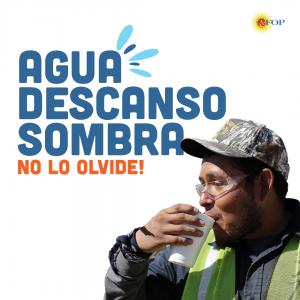

Ways farmworkers can prevent suffering a heat-related illness in the fields
Workers should avoid exposure to extreme heat, sun exposure, and high humidity when possible. When these exposures cannot be avoided, workers should take the following steps to prevent heat stress:
- Wear light-colored, loose-fitting, breathable clothing such as cotton. Avoid non-breathing synthetic clothing.
- Gradually build up to heavy work.
- Schedule heavy work during the coolest parts of the day.
- Take more breaks in extreme heat and humidity. Take breaks in the shade or a cool area when possible.
- Drink water frequently. Drink enough water that you never become thirsty. Approximately 1 cup every 15-20 minutes.
- Avoid alcohol, and drinks with large amounts of caffeine or sugar.
- Be aware that protective clothing or personal protective equipment may increase the risk of heat stress.
- Monitor your physical condition and that of your coworkers

Ways employers can prevent employees suffering from a heat-related illness in the fields
Employers should take the following steps to protect workers from heat stress:
- Schedule maintenance and repair jobs in hot areas for cooler months.
- Schedule hot jobs for the cooler part of the day.
- Acclimatize workers by exposing them for progressively longer periods to hot work environments.
- Reduce the physical demands of workers.
- Use relief workers or assign extra workers for physically demanding jobs.
- Provide cool water or liquids to workers.
- Provide rest periods with water breaks.
- Provide cool areas for use during break periods.
- Monitor workers who are at risk of heat stress.
- Provide heat stress training that includes information about:
- Worker risk
- Prevention
- Symptoms
- The importance of monitoring yourself and coworkers for symptoms





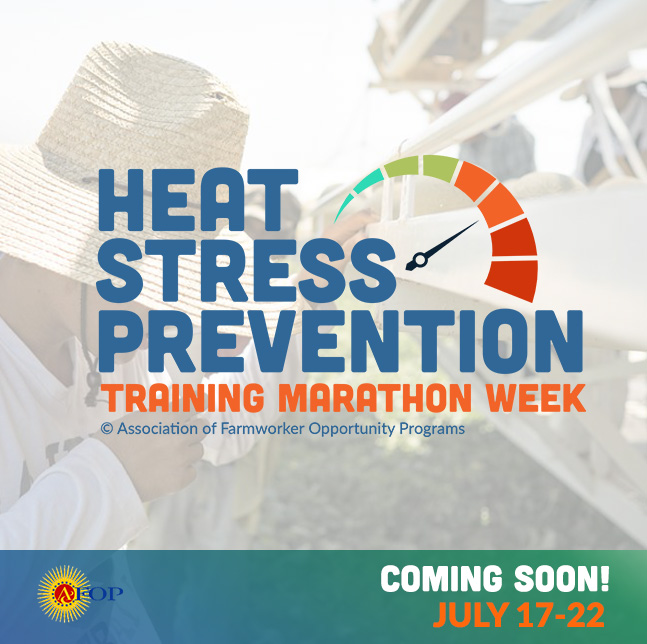
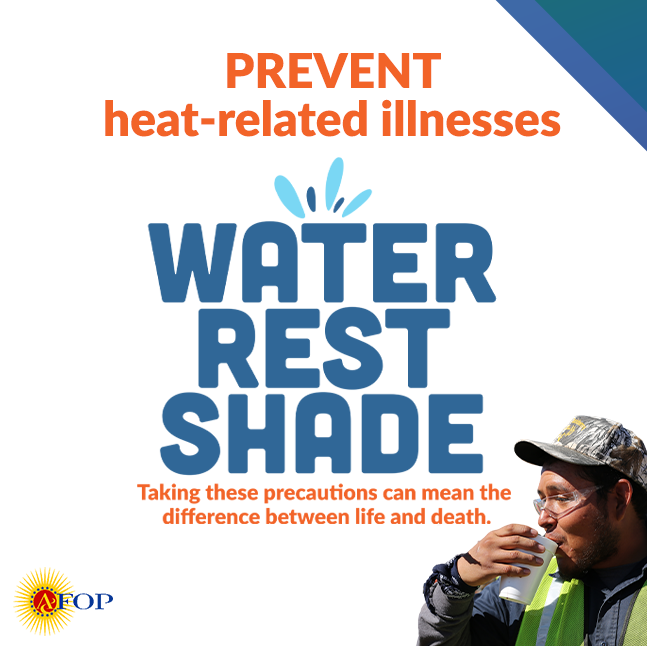
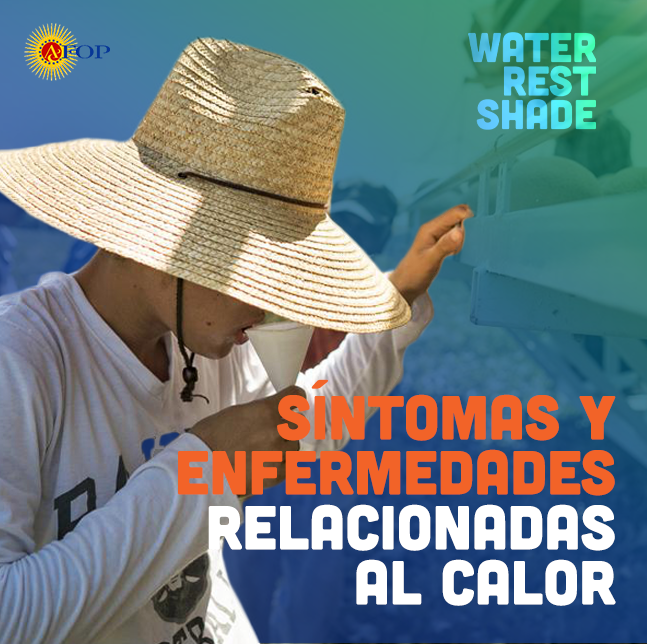
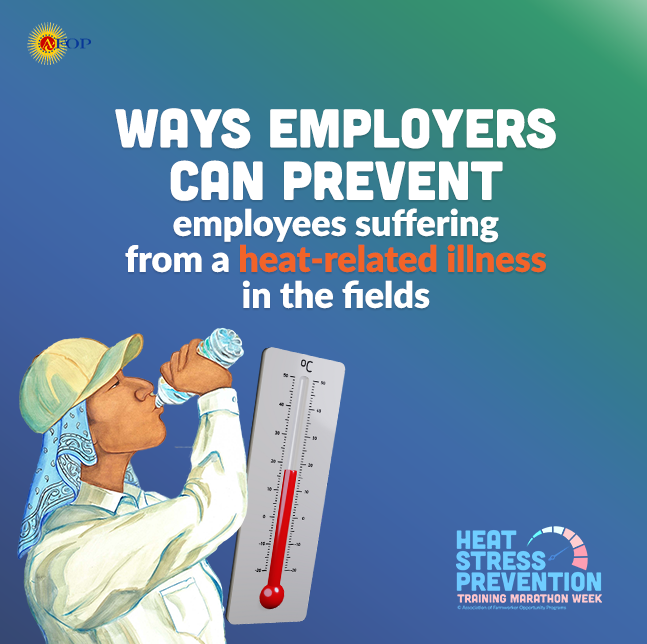
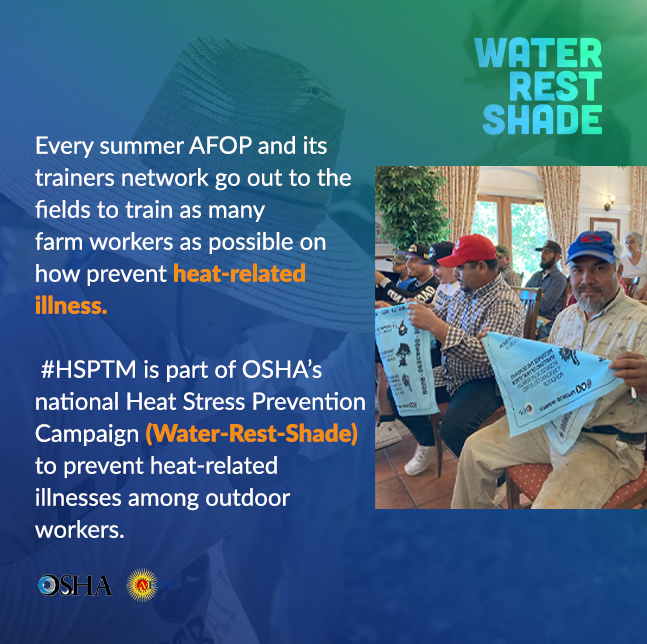
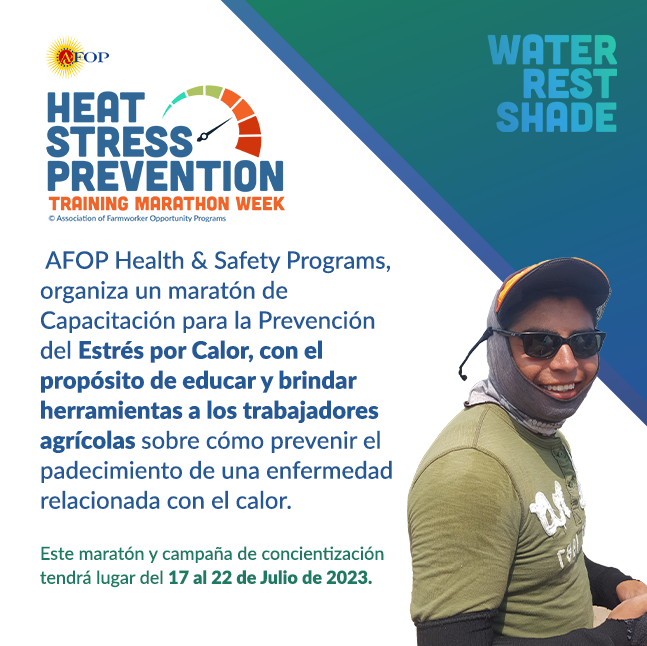
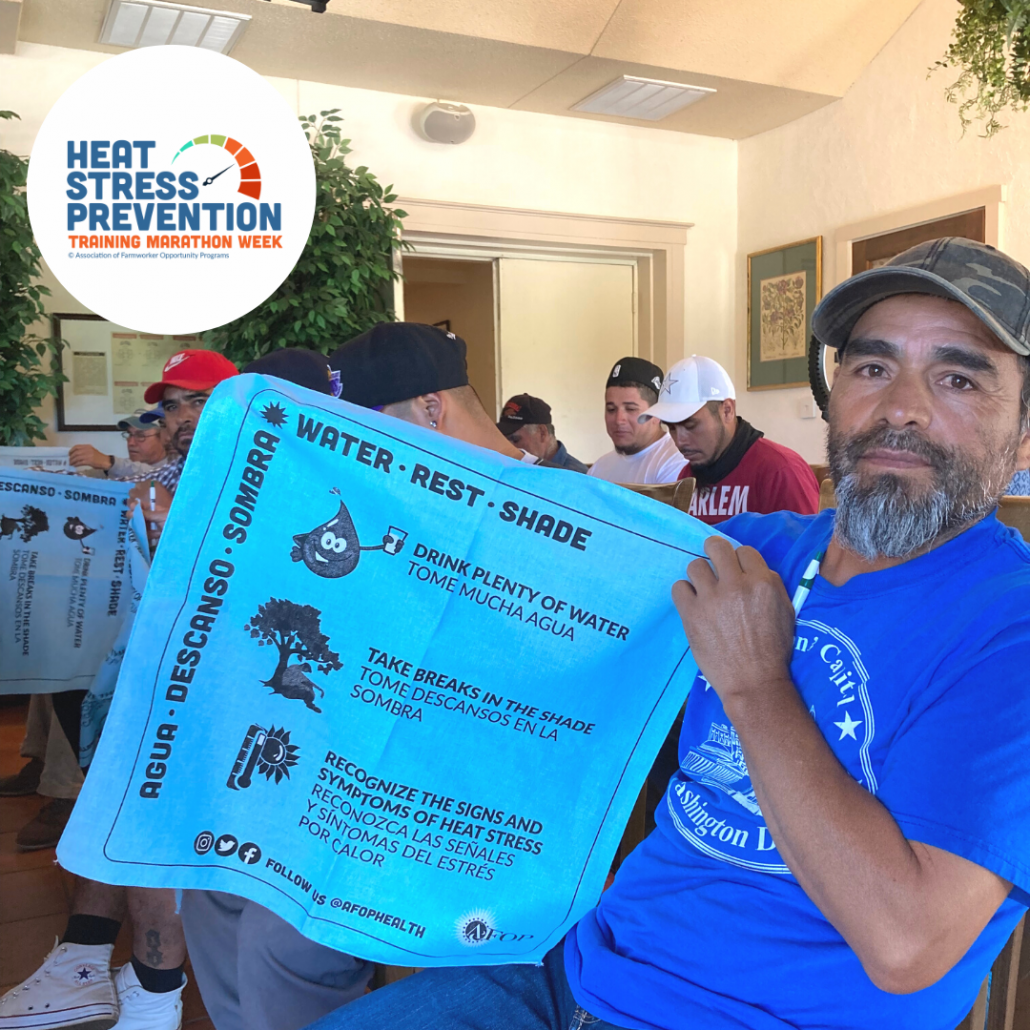
 RESOURCES
RESOURCES